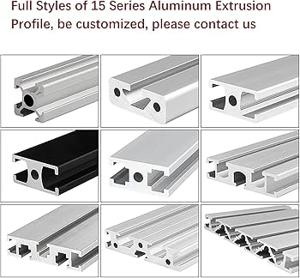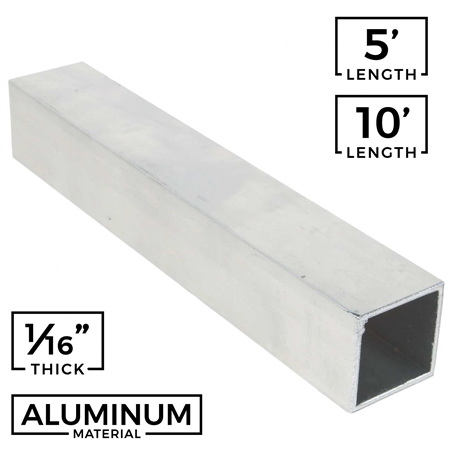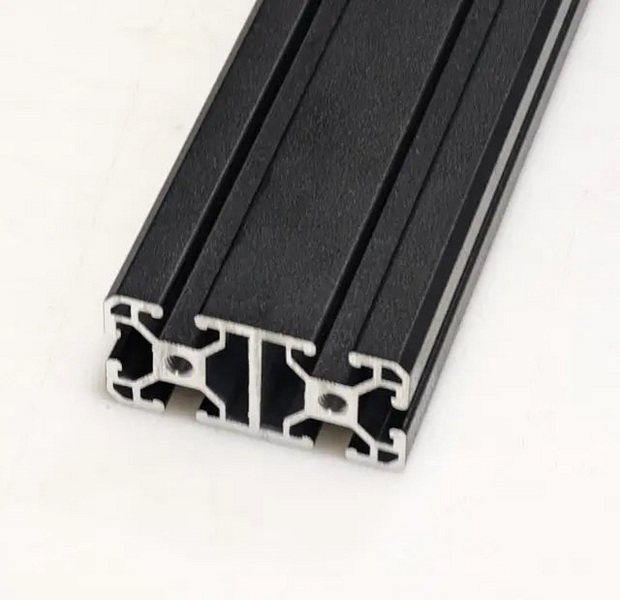Content Menu
● Understanding Aluminum Extrusion
>> Aluminum Extrusion Process
● The Dimensions of 2x3 Aluminum Extrusion
>> Comparison with Other Sizes
>> Visual Comparison of Aluminum Extrusions
● Benefits of Using 2x3 Aluminum Extrusion
>> Lightweight Yet Strong
>> Corrosion Resistance
>> Customizability
>> Cost Efficiency
● Applications of 2x3 Aluminum Extrusion
>> Visual Examples of Applications
● How Does It Compare with Larger Profiles?
● Considerations When Choosing Aluminum Extrusions
>> Installation Tips
● Conclusion
● Related Questions
>> 1. What are the typical uses of 2x3 aluminum extrusion?
>> 2. How does corrosion resistance affect aluminum extrusions?
>> 3. Can I customize my order of 2x3 aluminum extrusion?
>> 4. What factors should I consider when selecting an aluminum extrusion size?
>> 5. How does weight impact the choice of aluminum extrusions?
Aluminum extrusion is a manufacturing process that shapes aluminum alloys into specific cross-sectional profiles for various applications. Among the many sizes available, the 2x3 aluminum extrusion stands out due to its unique dimensions and versatility. In this article, we will explore how 2x3 aluminum extrusion compares to other sizes, its benefits, applications, and considerations for use.

Understanding Aluminum Extrusion
Aluminum extrusion involves forcing heated aluminum through a die to create a specific shape. This process allows for the production of complex profiles that can be tailored to meet specific engineering requirements. The resulting extrusions are lightweight, strong, and resistant to corrosion, making them ideal for a variety of industries.
Aluminum Extrusion Process
The aluminum extrusion process begins with heating aluminum billets to a temperature where they become malleable. The heated aluminum is then pushed through a die using a hydraulic press. As it exits the die, it takes on the desired shape. After extrusion, the profiles are cooled and can be cut to length. This method allows for high-volume production of uniform shapes with excellent surface finishes.
The Dimensions of 2x3 Aluminum Extrusion
The term "2x3" refers to the cross-sectional dimensions of the extrusion: it is 2 inches wide and 3 inches tall. This size is particularly popular for applications requiring structural support without excessive weight. The 2x3 profile strikes a balance between strength and weight, making it an ideal choice for various construction and manufacturing needs.
Comparison with Other Sizes
When comparing 2x3 aluminum extrusion to other common sizes, several factors come into play:
- Strength-to-Weight Ratio: The 2x3 profile provides an excellent strength-to-weight ratio, making it suitable for lightweight structures.
- Versatility: It can be used in various applications, from framing to supports in machinery.
- Cost-Effectiveness: Compared to larger profiles, the 2x3 size is often more economical while still providing adequate strength.
Visual Comparison of Aluminum Extrusions
| Size | Width (inches) | Height (inches) | Typical Applications |
|------------|----------------|------------------|--------------------------------|
| 1x1 | 1 | 1 | Small frames, brackets |
| 2x2 | 2 | 2 | Light structural applications |
| 2x3 | 2 | 3 | Medium structural support |
| 3x4 | 3 | 4 | Heavy-duty frames |
| 4x6 | 4 | 6 | Industrial machinery |
Benefits of Using 2x3 Aluminum Extrusion
Lightweight Yet Strong
One of the primary advantages of using 2x3 aluminum extrusion is its lightweight nature. This makes it easier to handle and install compared to heavier materials like steel. Despite its lightness, it maintains a high strength-to-weight ratio, making it suitable for structural applications.
Corrosion Resistance
Aluminum naturally forms a protective oxide layer when exposed to air, which helps prevent corrosion. This property makes the 2x3 aluminum extrusion ideal for outdoor applications or environments where moisture may be present. Unlike steel, which can rust over time when exposed to moisture, aluminum remains intact and does not require extensive maintenance.
Customizability
Aluminum extrusions can be customized in terms of length, finish, and even alloy composition. This flexibility allows manufacturers and builders to obtain exactly what they need for their specific projects. For example, anodized finishes can enhance corrosion resistance and aesthetic appeal.
Cost Efficiency
When considering both material costs and labor expenses, the use of 2x3 aluminum extrusion can be more cost-effective than other materials or larger aluminum profiles. Its balance of strength and weight often leads to reduced shipping costs as well.

Applications of 2x3 Aluminum Extrusion
The versatility of the 2x3 aluminum extrusion allows it to be used in a wide range of applications:
- Framing Systems: Ideal for creating frames for windows, doors, and other structures due to its strength and lightweight properties.
- Machinery Supports: Provides robust support in machinery without adding excessive weight. In manufacturing environments where equipment must be moved frequently, lighter supports help improve efficiency.
- Furniture Design: Used in modern furniture designs for both aesthetic appeal and functionality. The clean lines of the 2x3 profile lend themselves well to contemporary styles.
- Signage: Commonly used in sign frames due to its lightweight yet sturdy nature. Aluminum's ability to resist fading makes it an excellent choice for outdoor signage.
- Display Systems: Frequently employed in retail environments for display racks and shelving units because it allows easy assembly and reconfiguration.
Visual Examples of Applications
*Example of framing systems using 2x3 aluminum extrusions.*
Machinery Support
*Machinery support structure utilizing the lightweight properties of 2x3 aluminum.*
How Does It Compare with Larger Profiles?
When comparing the 2x3 profile with larger profiles like the 4x6 or even custom extrusions:
- Weight: Larger profiles tend to weigh significantly more, which can complicate installation and increase shipping costs. For example, while a single length of a larger profile might require additional handling equipment due to its weight, the lighter 2x3 can often be managed by hand.
- Strength: While larger profiles may offer increased strength, the 2x3 size often provides sufficient support for many applications without unnecessary bulk. For instance, in construction projects where space is limited but structural integrity is required, opting for a smaller profile can lead to better design flexibility.
- Cost: Larger extrusions typically come at a higher price point due to increased material usage. Choosing a smaller size like the 2x3 can lead to significant savings without sacrificing performance.
Considerations When Choosing Aluminum Extrusions
When selecting the right size of aluminum extrusion for your project, consider the following factors:
- Load Requirements: Ensure that the selected profile can handle the expected loads without bending or deforming. Consulting load tables provided by manufacturers can help determine if the 2x3 profile meets your needs.
- Environmental Conditions: Consider whether the application will be indoors or outdoors and choose an appropriate finish if necessary. For outdoor applications exposed to harsh weather conditions, opting for an anodized finish may provide additional protection against corrosion.
- Aesthetic Preferences: The visual appearance may also influence your choice, especially in furniture or architectural applications where design plays a crucial role.
Installation Tips
When working with aluminum extrusions like the 2x3 profile:
- Ensure all cuts are made accurately using appropriate tools such as miter saws designed for metal cutting.
- Use proper fasteners compatible with aluminum materials; self-tapping screws or rivets are often recommended.
- Consider using corner brackets or connectors specifically designed for aluminum extrusions to enhance stability during assembly.
Conclusion
In summary, the 2x3 aluminum extrusion offers a unique combination of strength, lightweight design, and versatility that makes it an excellent choice across various industries. Its ability to perform well in structural applications while remaining cost-effective sets it apart from both smaller and larger profiles. Whether you are building furniture, designing machinery supports, or creating frameworks for construction projects, understanding how the 2x3 size compares with other options can help you make informed decisions that enhance your project outcomes.

Related Questions
1. What are the typical uses of 2x3 aluminum extrusion?
The typical uses include framing systems for windows and doors, supports in machinery, furniture design elements, signage frames, and display systems in retail environments.
2. How does corrosion resistance affect aluminum extrusions?
Corrosion resistance allows aluminum extrusions like the 2x3 profile to maintain their integrity over time when exposed to moisture or harsh environments; this means less maintenance is required compared to steel components that may rust over time.
3. Can I customize my order of 2x3 aluminum extrusion?
Yes, many manufacturers offer customization options regarding length, finish (such as anodizing), and alloy composition based on project requirements; this flexibility ensures you get exactly what you need.
4. What factors should I consider when selecting an aluminum extrusion size?
Consider load requirements (ensuring adequate strength), environmental conditions (indoor vs outdoor), aesthetic preferences (appearance matters in design), and cost efficiency when selecting an aluminum extrusion size.
5. How does weight impact the choice of aluminum extrusions?
Weight impacts handling ease during installation and transportation costs; lighter profiles like the 2x3 are often preferred for projects where weight is a concern since they simplify logistics while maintaining structural integrity.






















